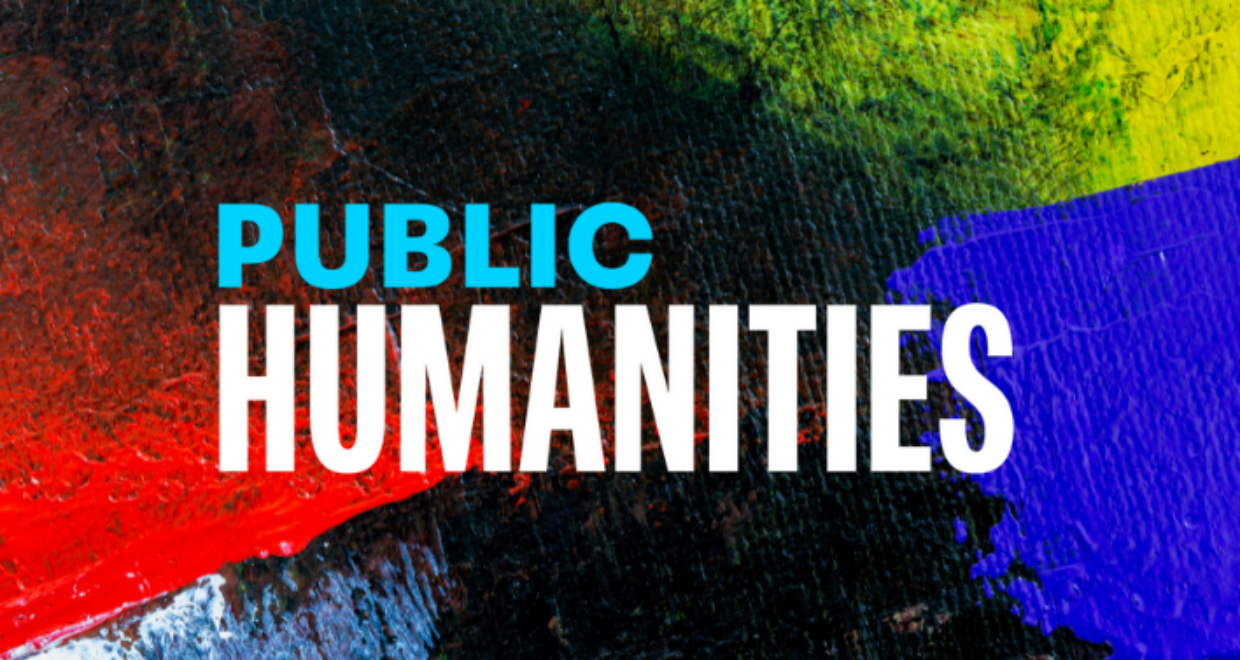A Flagship Venture in Humanities
Zoe Hope Bulaitis and Jeffrey R. Wilson describe their inspirations and passions as they prepare for the launch of the Public Humanities journal.

As Editors-in-Chief of a new cross-disciplinary journal with an audience spanning a huge range of sectors, it is fitting that Zoe Hope Bulaitis and Jeffrey R. Wilson have remarkably distinct backgrounds.
Zoe, a first-generation literature scholar, grew up in London with a passion for indie music and later developed a love of the sea during a decade at the University of Exeter – while Jeff grew up in Kansas, in the middle of the USA and in his words “pretty far off the usual pathways to academia”. What unites them is a love of literature; Jeff’s interest in public humanities was spawned by a fascination in debates around the works of William Shakespeare, while Zoe pursued journalism as a potential career before “falling in love with longer-forms of writing and collaborative academic work” during her MA at Exeter.
These days Zoe is an Assistant Professor in Liberal Arts and Natural Sciences in the College of Arts and Law at the University of Birmingham, UK, while Jeff designs classes for Harvard Online and teaches classes for Harvard Extension School.
Cambridge calling
The pair recently joined forces on Public Humanities, published by Cambridge University Press – an international journal at the intersection of humanities scholarship and public life. The journal is an open-access forum, engaging with a wide range of issues, authors, and readers and demonstrating the breadth, depth, and value of the humanities in its varied contributions to public life.
Jeff explains: “The journal is a rendezvous – a meeting place for a diverse set of professions, disciplines, perspectives, and people. Where academia tends to create barriers – disciplinary boundaries, paywalls that no one can afford, clubs and cliques – Public Humanities measures our success by how many connections we can create among previously isolated people and ideas. Our scope is massive: we’re a home for the interpretation of human culture and creativity (that’s the “humanities” part of Public Humanities).
“But our approach is what makes the journal special: we value accessibility above all else (that’s the “public” part). Public Humanities is a place for people to discuss and debate the things that matter most to the lives that we are trying to lead day-to-day.” Zoe continues: “Public humanities is a forum for sharing and strengthening the intersections between humanities scholarship and public life. Its subject area is the humanities: which might be defined as the study of things that human beings make – be that art, writing, ideas, religions, governments, mistakes, societies, intangible cultures, technologies.”
Open to all
The journal’s open access format will be critical, reports Zoe: “Free access to high-quality academic research is crucial. As research is increasingly published and circulated online it is important to consider the barriers for access. This includes those who might want to write for the journal as well as those who will read it. The Open Access funding model we have developed is a flagship venture in finding ways to democratise approaches beyond individual authors being subject to Article Processing Charges (APCs). This will mean that we are able to publish brilliant submissions from around the world and support excellent scholarship at many different career stages.”
Indeed, the journal’s contributors and readers will comprise scholars, students, activists, journalists, policy-makers, professionals, practitioners, and non-specialists. Jeff says: “Anyone asking big questions and attempting bold answers can write for the journal, regardless of degree or title. Our readership crosses over from academia to anyone looking for a quick hit of intellectual thought to deepen their understanding of the variously amazing and troubling things humans do.”
“Floored by excitement”

The Public Humanities team is releasing its first published articles in early November. Jeff notes:
“We’ve been floored by the excitement for the journal. We hoped we might be able to cajole 20 people into helping to set the vision for the journal. Instead, an amazing team of over 90 thinkers and doers from across the humanities (and from six continents) has assembled to form the journal’s inaugural advisory board. That’s led by an Editorial Collective of eight public intellectuals from across the disciplines.
One point of focus for the next two years is to synthesize the various – sometimes conflicting – ideas from this community into policies and practices for the journal. Our inaugural issue, called The Manifesto Issue, will set an agenda for public humanities in the years ahead.”
Looking ahead to the next two years, Zoe and Jeff are excited at the prospect of working with guest editors to develop pitches and proposals. The pair hope the journal will become a meeting place and go-to forum for the most vibrant and exciting projects in public communities. Those who are interested in writing for the journal or editing an issue are encouraged to contact the Public Humanities team at publichumanities@cambridge.org.uk.
The pair’s clear passion for their work, and everything that is human, will no doubt be a winning combination for the development and future of this ground-breaking journal.
Public Humanities is a new journal that intersects humanities scholarship with public life. The journal provides a new space for scholars, students, activists, policymakers and general readers to explore human habits and histories, art and ideas, language and beliefs – past, present, and future. Learn more about Public Humanities here.






